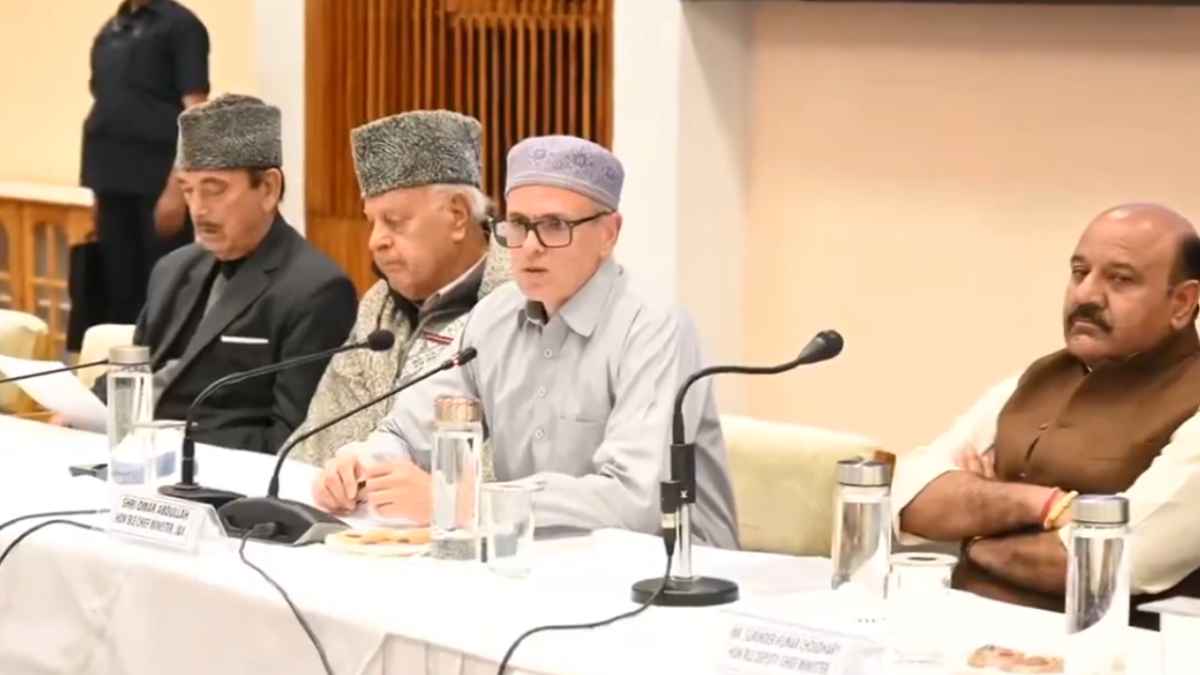The Indus Water Treaty (IWT), signed in 1960 between India and Pakistan and brokered by the World Bank, has long been a critical yet contentious agreement governing the sharing of water from the Indus River and its tributaries. Recently, Jammu and Kashmir Chief Minister Omar Abdullah publicly called the treaty the "most unfair document" to the people of Jammu and Kashmir, expressing support for the Indian government's decision to suspend the treaty following a deadly terrorist attack in Pahalgam.
Background of the Indus Water Treaty

The treaty was designed to allocate the waters of six rivers flowing through India and Pakistan, aiming to ensure water security for both nations. However, from the perspective of Jammu and Kashmir, the treaty has been a source of grievance for decades. The region, which hosts the headwaters of these rivers, has often felt disadvantaged by the terms of the treaty, which restrict India’s use of water resources originating there.
Omar Abdullah’s Perspective
Omar Abdullah, addressing the media after meeting with tourism, trade, and industry representatives, stated that Jammu and Kashmir has never supported the treaty. He described it as inherently unfair to the people of the Union Territory and welcomed the Centre’s move to suspend it in response to the April 22 terrorist attack in Pahalgam that killed 26 people, including tourists.
Abdullah emphasized that while the treaty has been a long-standing issue, the recent suspension was a necessary response to Pakistan’s alleged support for cross-border terrorism. He acknowledged that the medium to long-term effects of suspending the treaty remain uncertain and will require careful observation.
Government Actions and Reactions

Following the attack, the Indian government took several retaliatory steps, including downgrading diplomatic ties with Pakistan, expelling Pakistani military attaches, shutting down the Attari land transit post, and suspending the Indus Water Treaty. Union Home Minister Amit Shah convened a high-level meeting with senior officials, including the Jal Shakti Minister CR Paatil, to discuss the treaty's suspension and future water management plans. The government has formally notified Pakistan of the suspension and proposed amendments to the treaty through official channels.
CR Paatil assured that no water would be allowed to flow to Pakistan under the suspended treaty, signaling a firm stance on the issue.
Broader Implications

The suspension of the Indus Water Treaty marks a significant shift in Indo-Pak relations, given that the treaty had survived multiple conflicts since 1960. Pakistan has warned that any move to suspend water sharing will be treated as an "act of war," highlighting the potential for escalating tensions.
From a regional perspective, the treaty’s suspension could impact water availability and management in Jammu and Kashmir and downstream areas. While the treaty was designed to ensure equitable water sharing, critics argue that it limited Jammu and Kashmir’s ability to fully utilize its water resources for local development.
The Indus Water Treaty has historically been viewed as a cornerstone of cooperation between India and Pakistan, even during periods of conflict. Its suspension reflects the deteriorating political and security situation but also raises concerns about the future management of shared water resources.
Omar Abdullah’s remarks highlight the local sentiment in Jammu and Kashmir, where the treaty is seen as unjust. However, the broader geopolitical consequences of suspending the treaty are complex. Water sharing is a sensitive issue that affects millions, and any disruption could have far-reaching environmental, economic, and humanitarian effects.

The coming months will be critical in determining how both countries navigate this challenge. Diplomatic efforts, technical negotiations, and confidence-building measures will be essential to prevent further escalation and to ensure sustainable water management in the region.
In summary, Omar Abdullah’s support for the suspension of the Indus Water Treaty underscores longstanding grievances in Jammu and Kashmir regarding water rights. The Indian government’s decision to suspend the treaty is a direct response to security concerns but also opens a new chapter in the complex water politics between India and Pakistan. The situation calls for cautious monitoring and balanced dialogue to safeguard the interests of all.
With inputs from agencies
Image Source: Multiple agencies
© Copyright 2025. All Rights Reserved Powered by Vygr Media.























